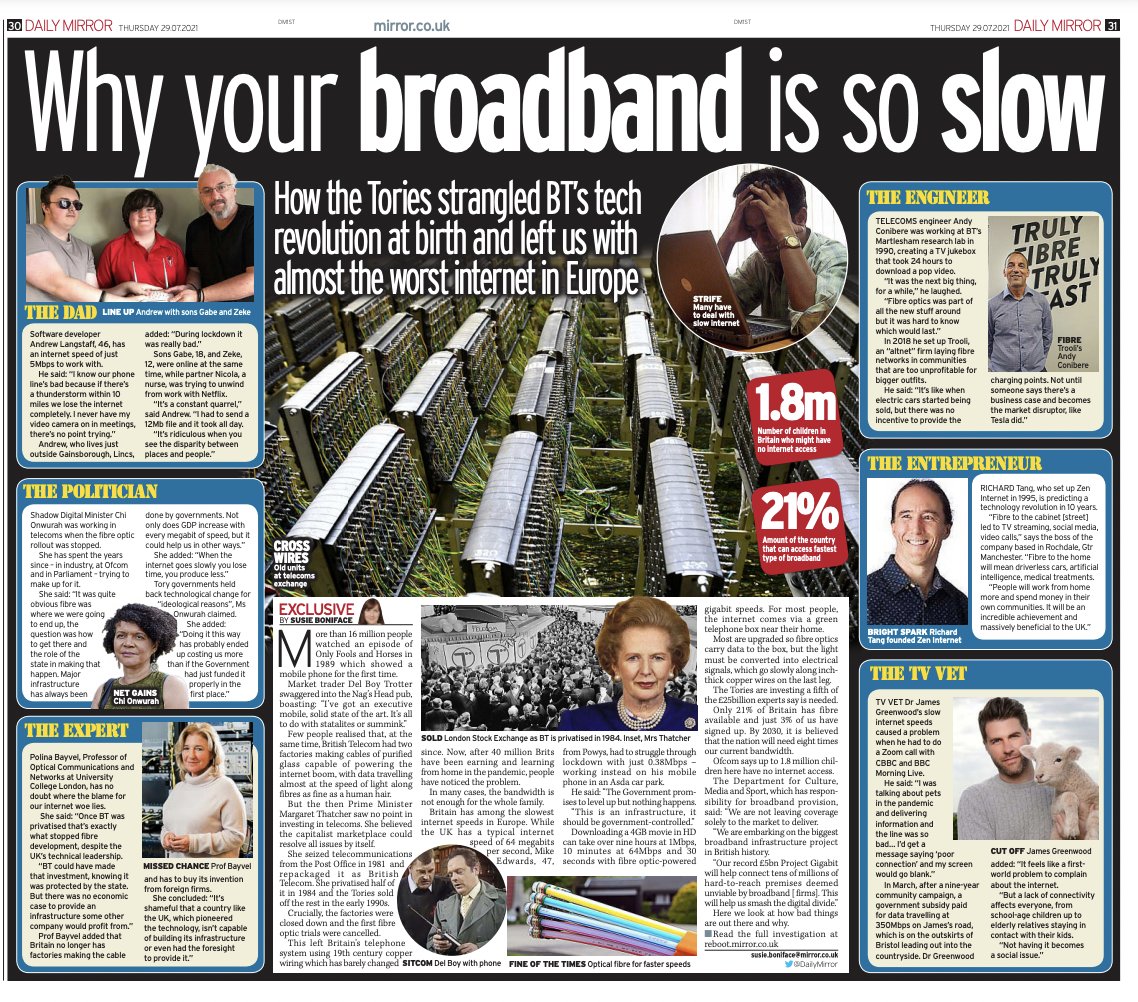TRANSNET director features in Mirror special report
TRANSNET director Professor Polina Bayvel provides expert commentary in a special investigation commissioned by The Mirror newspaper on the state of Britain’s broadband.
Today, a fast, reliable, and cost-effective connection to the internet is essential for everyday life, but the UK has some of the slowest and most expensive internet speeds across Europe – a problem made all the more evident by the coronavirus pandemic as millions attempted to work and study from home with inadequate bandwidth.
‘REBOOT: Britain’s Broken Broadband’ is a special in-depth report commissioned by the Mirror looking at how bad the problem is, the reasons behind it, and how it can be fixed for speedier connections in the future. The report is divided into four parts:
Part 1: The Social Notwork
This section describes the frustrations of too-slow broadband for the 21st Century because of greater demand for internet services coupled with outdated technology. Polina makes a wonderful analogy here to explain the problem based on elephants and water (scroll to the end to read it).
Part 2: The Internot
This part explains how the UK was once a world leader in the development and manufacture of fibre-optics but politics deemed broadband advancement unnecessary at the time and investment into the pioneering technology – that revolutionized the telecommunications industry – stopped. Polina also shares her expert opinion on this pivotal moment in British broadband history.
Part 3: Get More Fibre
The third part of ‘REBBOT: Britain’s Broken Broadband’ examines why broadband speeds vary so much across the country and the challenges of upgrading the network to improve internet connections now and to support future demand.
Part 4: Please Check Your Connection
The final part of the report considers what is being done to improve full-fibre coverage across the UK and what users can do to speed things up in their area.
The REBOOT report uncovers the reasons behind Britain’s poor broadband speeds (slow government, slow broadband) and what can be done about it. It also underlies the consequences of failing to update existing infrastructure in a timely and equitable manner – as the rest of the world races ahead with superfast broadband, the UK risks remaining in the slow lane as it struggles to cope with the bandwidth demands of an internet-reliant society. Let the lockdowns be a lesson for change.
But it’s not all doom and gloom, the UK still leads the world when it comes to developing fibre-optic technologies for telecommunications. The impact of research programme grants like TRANSNET, led by Professor Polina Bayvel, will transform the future of internet connections for all, delivering intelligent network networks able to provide capacity to where and when it is needed. And fixing Britain’s broken broadband for good.
